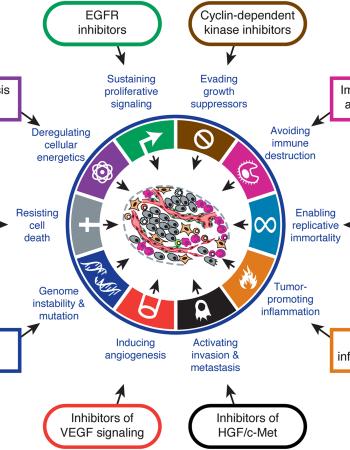Role of Oxidative Stress in La2O3 Nanoparticle-Induced Cytotoxicity and Apoptosis in CHANG and HuH-7 Cells.Hanouf Almukhlafi, Daoud Ali, Bader Almutairi , Khadijah N Yaseen, Nouf Alyami , Rafa Almeer, Saad Alkahtani, Saud Alarifi
Introduction: Nanoparticles are extensively applied in pharmaceutical, agriculture, food processing industries, and in many other fields. In the current experiment, we have determined the mechanism of toxicity of lanthanum oxide nanoparticles (La2O3 NPs) on human liver cell lines.
Methods: Before the investigation, we have characterized the size and shape of La2O3 NPs using dynamic light scattering (DLS) and transmission electron microscope (TEM). The mean size of the La2O3 NPs was found 32 ± 1.6 nm with a sheet-like shape. The cytotoxicity effect of La2O3 NPs for 24 h on CHANG and HuH-7 cells was determined by using 3-(4,5-dimethylthiazol-2-yl)-2,5-diphenyltetrazolium bromide (MTT) and lactate dehydrogenase (LDH) assays.
Results: The cytotoxicity was observed in a concentration-dependent manner in both cells but NPs were more toxic to HuH-7 than CHANG cells. Generation of reactive oxygen species (ROS) was determined using fluorescent dye 2′,7′-dichlorofluorescin diacetate (DCFDA) and high green fluorescence was observed in HuH-7 cells than CHANG cells. Oxidative stress biomarker such as glutathione (GSH) was decreased and antioxidant enzyme superoxide dismutase (SOD) was increased but SOD level was decreased in HuH-7 cells than CHANG cells. Apoptotic cells were determined by using fluorescence-activated cell sorting (FACS) analysis. Maximum percentage of the apoptotic cell was observed at 300 μg/mL in HuH-7 cells. DNA double-stranded breakage was observed by comet assay and maximum DNA damage was found in CHANG cells than HuH-7 cells at 300 μg/mL La2O3 NPs for 24 h.
Conclusion: Thus, this study demonstrated that La2O3 NPs were toxic to human liver cells and induced more toxicity in HuH-7 cells than CHANG cells.

This research introduces a new hybrid material for potential cancer treatment. It combines carbon nanotubes decorated with copper nanodots and Arabic gum through an electroless reduction…

Background: Nanotechnology has emerged as a novel research area to address the several problems associated with existing cancer treatments.

Liver cancer is often highly fatal due to poor prognosis. The treatment approaches are continuously evolving with the advancements in technology.

